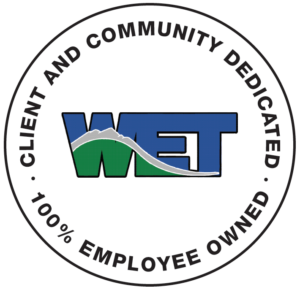CAFO INVESTIGATIONS & UPGRADES
Yakima, Washington
WET became involved in the Concentrated Animal Feeding Operation (CAFO) industry in 2014 as part of litigation against a cluster of five dairies in the Yakima Valley, Washington. The overall objective was to identify the source of nitrate, bovine growth hormones, and bovine antibiotics in the drinking water aquifer. By building on work completed by and in collaboration with EPA Region 10, groundwater and soil investigations were completed to identify the hydrogeologic fate and transport pathways for the various contaminants. As a result of WET’s investigations, a consent decree was entered into between the parties and a corrective measures/remedial action plan was implemented. While this is the first CAFO corrective measures plan in the nation, a technically unique agreement was constructed to allow the dairies to continue operations while addressing and eliminating the various sources of contamination. The agreement included:
- Engineering design of a waste lagoon liner system with leachate collection and schedule for the implementation of the remedy
- Modifications to the dairy nutrient management plant to the adjust land application processes to include performance monitoring of agronomic uptake and prevent leaching of nutrients
- Inspection and repair of all underground conveyance structures
- Sloping and compacting of compost areas to promote runoff of composting liquids
- A detailed monitoring and maintenance plan
- A plan to line surface water ditches
By working cooperatively with both sides of the litigation, WET was able to design and receive EPA approval of the first lagoon lined on the project and oversee both the management plan and the compost area modifications. WET currently reviews submittals for compliance purposes, communicates with EPA personnel on changes or updates to the overall plan, oversees the groundwater monitoring and domestic water monitoring programs, and works cooperatively with both sides of the issue. WET provided expert witness support to initial litigation before taking the lead on remedial investigations and remedial design, as well as developing and managing scopes of work and a managing subcontractor for remediation. Of particular note, Federal Judge Thomas Rice noted WET Principal Hydrogeologist Mr. Dave Erickson’s expert reports, investigation design, reporting, and testimony were very helpful in understanding the complex issues in the case and awarded expert fees in advance of any other fees in the case.



